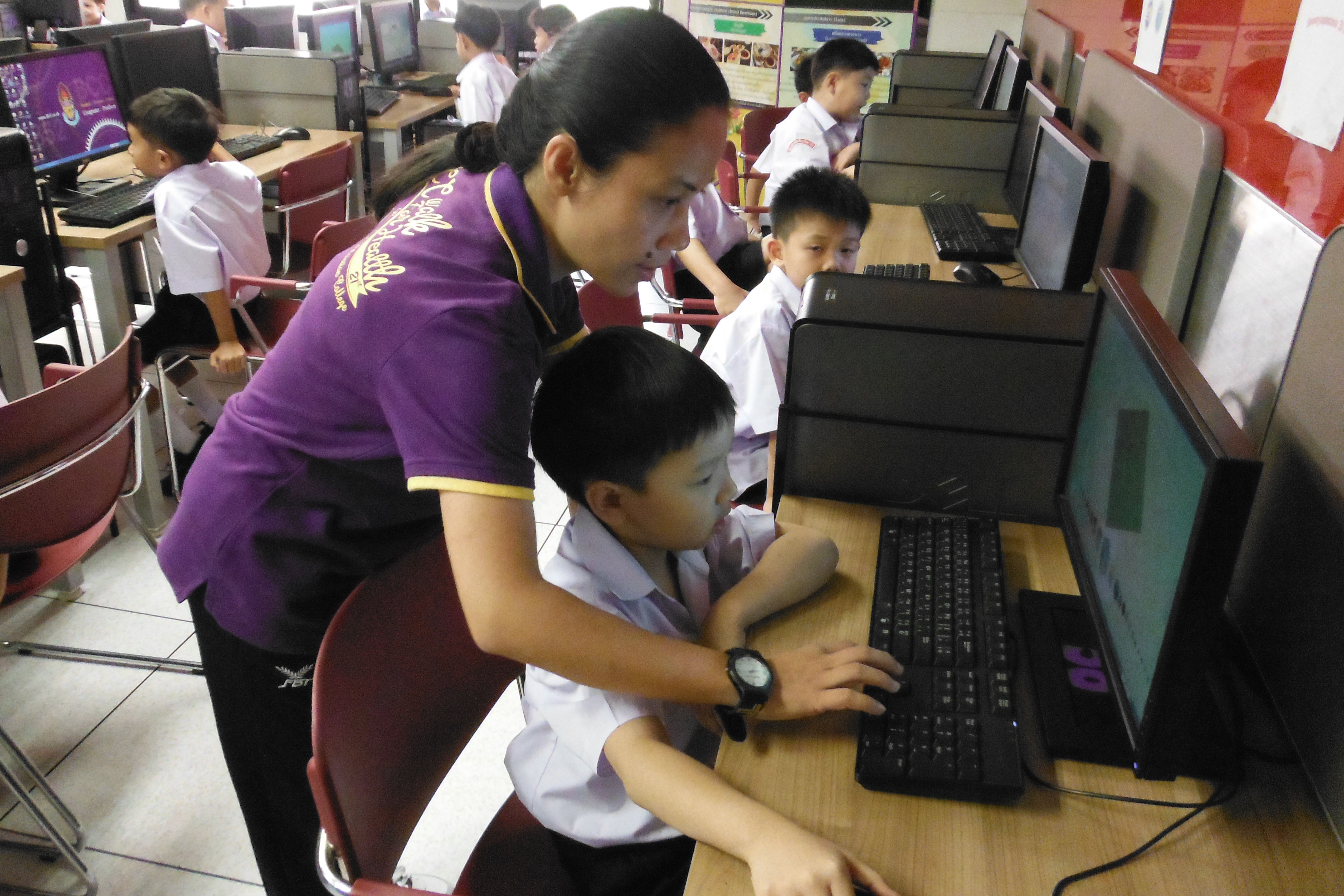#WeSpeakCode Profile – Siriphan Phuangsukkhee
Microsoft’s #WeSpeakCode campaign aims to empower young people across Asia Pacific to learn coding and realise their potential. We spoke to several individuals who are passionate about coding and involved in encouraging others to discover the fun and excitement of learning to code.
.jpg) A computer science teacher at Bangkok Christian College, Siriphan Phuangsukkhee has a passion for using technology to transform her students' learning experiences.
A computer science teacher at Bangkok Christian College, Siriphan Phuangsukkhee has a passion for using technology to transform her students' learning experiences.
A computer science teacher at Bangkok Christian College, Siriphan Phuangsukkhee has a passion for using technology to transform her students' learning experiences. Whether it involves coding activities to cultivate critical thinking or encouraging them to participate in tech competitions, Siriphan remains focused on helping students develop the skills they need to succeed in tomorrow’s digital world. Her efforts to bring the latest technology tools into the classroom were recognised in 2009 when Siriphan received a Thailand Innovative Teacher Leadership Award.
How has the role of educator evolved in preparing young people for the digital economy?
New technologies are evolving at such a rapid pace that educators need to change their teaching methods accordingly. We need to explore new ways of keeping our students engaged in the classroom. I also learned to always keep my own technology capabilities sharpened from my fellow educators in the Innovative Teachers programme.
Can you share your own experiences in learning code?
I studied various programming languages in university, such as C language, JAVA, Prolog and Visual Basic. Having acquired these programming basics, I find online resources and websites such as code.org to be very useful for anyone interested in coding. I also signed up for app development training sessions that are based on the Windows App Studio. I feel privileged to impart what I have learned to my students and the younger generation.
How do you keep young coders motivated to learn?
Kodu Game Lab is a great tool that I often use to teach young students how to code. It is simple enough for them to pick up the fundamentals of coding, and also allows them to practise and hone their coding capabilities in their own time.
Every student is unique, and there can be no “one-size-fits-all” approach to teaching code. An educator needs to pay attention to whether the course curriculum matches the learning capabilities of their students, and look out for the right coding platforms that can spark their interests. A good example is Scratch, a popular programming language that allows younger students to create their own interactive stories, games and animation. It features a lot of graphics that appeal to young children and helps them take their first steps into coding.

What coding activities have played a significant role while mentoring your students?
At Bangkok Christian College, we encourage our students to actively take part in competitions such as the Microsoft IT Youth Challenge, which provide a platform to showcase their IT work. During these competitions, the students learn how to support each other and collaborate to make their ideas better. It’s never about winning. It is more about the opportunity to work together that enriches the learning experience.
Many students are hesitant to participate in competitions because they lack confidence. I encourage them to always keep their eyes on the “bigger prizes”—the experience gained from joining these competitions and being part of a team—for these experiences serve as important lessons that can never be taught in the classroom.